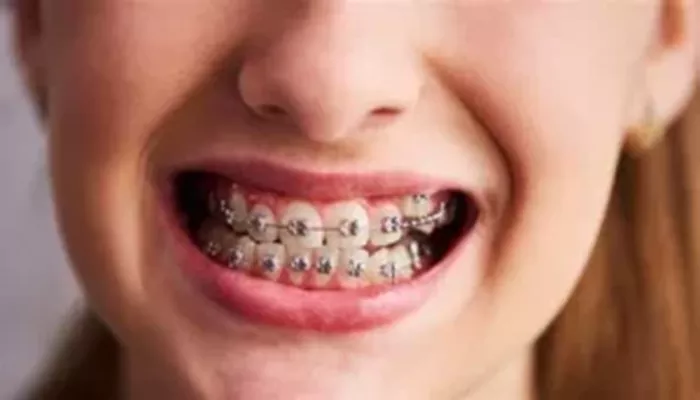Braces are a common orthodontic treatment used to straighten teeth and improve dental alignment. Many people who are considering braces often wonder about the impact these devices will have on their daily lives. One common question is whether wearing braces will change their voice. In this article, we will explore how braces can affect speech, the reasons behind any changes, and what to expect during your orthodontic journey.
Understanding Braces
What Are Braces?
Braces are dental devices designed to correct misaligned teeth and jaws. They consist of several components, including brackets, wires, and bands. The brackets are attached to the teeth, while the archwire connects them and applies pressure to move the teeth into the desired position.
How Do Braces Work?
Braces work by applying continuous pressure to the teeth over time. This pressure gradually shifts the teeth into their correct positions. Orthodontists adjust the braces periodically to ensure that the teeth continue to move as planned.
Will Braces Change Your Voice?
The Short Answer
Wearing braces can lead to temporary changes in your voice. However, these changes are usually minor and often resolve as you adjust to the braces.
How Braces Can Affect Your Voice
1. Changes in Oral Structure
Braces alter the alignment of your teeth and, in some cases, your jaw. These changes can affect how your tongue and lips interact with your teeth. As a result, you may notice slight changes in your speech patterns.
2. Adjusting to New Appliances
When you first get braces, your mouth may feel different. You may need time to adjust to the presence of brackets and wires. This adjustment period can temporarily affect your pronunciation and clarity of speech.
3. Tongue Placement
The position of your tongue plays a crucial role in speech. With braces, the space in your mouth changes, which can lead to different tongue placement. This change can affect how certain sounds are produced, especially sibilant sounds like “s” and “sh.”
Examples of Speech Changes
Some individuals may experience the following changes in their speech after getting braces:
Sibilance: Sounds like “s” and “z” may become less clear.
Lisping: Some people develop a slight lisp when they first get braces.
Difficulty with Certain Sounds: Pronouncing certain letters, such as “t,” “d,” and “th,” may feel different.
Duration of Voice Changes
Temporary Changes
Most voice changes experienced during the initial adjustment period are temporary. Your mouth will adapt to the braces, and your speech will likely return to normal within a few weeks.
Long-Term Effects
In general, any long-term changes to your voice are rare. Once your braces are removed, your teeth will be in their new positions, and your speech should return to its normal state.
Factors That Influence Voice Changes
Several factors can influence whether you will notice a change in your voice after getting braces:
1. Type of Braces
Different types of braces may have varying impacts on speech. Traditional metal braces may affect speech differently than clear aligners or lingual braces (which are placed on the back of the teeth).
2. Severity of Orthodontic Issues
The severity of your orthodontic issues can also play a role. If you have significant misalignment, it may take longer for your mouth to adjust to the changes caused by braces.
3. Individual Differences
Everyone’s mouth and speech patterns are unique. Some people may notice more significant changes in their voice than others. Factors such as age, speech habits, and the ability to adapt to new dental appliances can all play a role.
Tips for Managing Voice Changes
If you experience changes in your voice after getting braces, here are some tips to help you manage:
1. Practice Speaking
Take time to practice speaking out loud. Reading aloud or talking to friends and family can help you adjust to the new feel of your braces and improve your speech clarity.
2. Be Patient
Give yourself time to adjust. It is normal to feel a bit awkward when speaking with braces at first. Most people will adapt within a few weeks.
3. Communicate with Your Orthodontist
If you notice persistent speech issues, talk to your orthodontist. They can check the fit of your braces and make any necessary adjustments.
4. Use a Mirror
Practicing in front of a mirror can help you become more aware of your mouth movements. This awareness can improve your pronunciation and confidence when speaking.
5. Avoid Certain Foods
While adjusting to braces, some foods can exacerbate speech difficulties. Sticky or hard foods may make it harder to speak clearly. Opt for softer foods that are easier to manage until you feel more comfortable.
The Role of Speech Therapy
When to Consider Speech Therapy
If you find that your voice changes persist beyond the initial adjustment period, consider consulting a speech therapist. A speech therapist can provide exercises and techniques to help improve your speech clarity.
Benefits of Speech Therapy
Speech therapy can be beneficial for individuals experiencing significant changes in their speech. A therapist can work with you to develop strategies to overcome any difficulties you may face.
Conclusion
In conclusion, wearing braces can lead to temporary changes in your voice, primarily due to adjustments in oral structure and tongue placement. Most individuals will experience minor changes that resolve within a few weeks as they adapt to their braces.
It is essential to be patient during this adjustment period and practice speaking regularly. If you have concerns about your speech or if changes persist, consult your orthodontist or a speech therapist for guidance. With time and practice, you can maintain clear speech and enjoy the benefits of a beautifully aligned smile.
Related topics:

